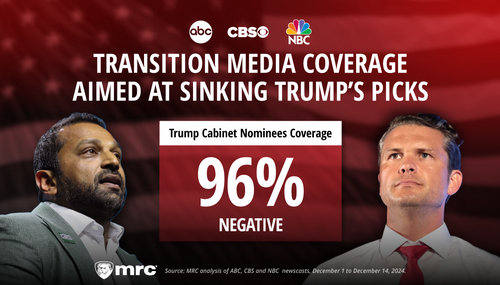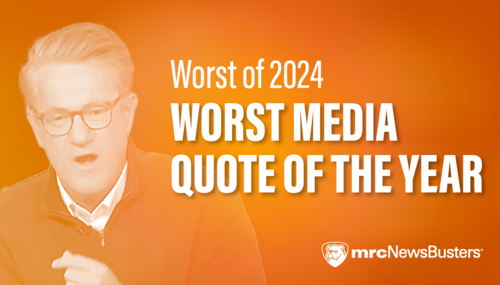West Virginia became the nation's 26th state with a "right-to-work" law a bit over a week ago. At the same time, it also repealed "prevailing wage" requirements for public construction projects.
The idea that the formerly Democrat-dominated Mountain State would pass either item was unthinkable as little as a decade ago. That was before the Obama administration began its war on coal-powereed electricity generation. Now the state has a Republican legislature which is trying to save what's left of the state's economy and prevent a further jobs exodus. Despite the Mountain State's history of violent union-management confrontations almost a century ago, all of this has received relatively little national press coverage. As would be expected, the story at the largely union-represented Associated Press on the day the two measures became law was ignorant and misleading.
In the bolded items in the excerpt below, reporter Jonathan Mattise failed to define the term correctly, and made a naive assumption about the legislation's impact:
LAWMAKERS VOTE TO MAKE W. VIRGINIA RIGHT-TO-WORK STATE
West Virginia, a suffering coal mining state shaped by the sometimes-bloody history of its organized labor, is set to become the 26th state with a so-called right-to-work law.
In House and Senate party-line votes Friday, lawmakers rebuked a veto Thursday by Democratic Gov. Earl Ray Tomblin. The move will solidify a law that proponents say will draw in business and give workers more freedom over their ties to unions, but which opponents say is solely meant to undercut unions. The law becomes effective July 1.
Along similar partisan lines Friday, the Legislature dealt another blow to unions by overriding a second Tomblin veto, of a law that will eliminate the state's prevailing wage on public construction projects. The law becomes effective in May.
Both the right-to-work and prevailing-wage-repeal proposals drew thousands of protesting union workers to the Capitol over the past month. Both also snagged a handful of 'no' votes from House Republicans.
Even with a slim 18-16 edge in the Senate, the GOP had the advantage of a much easier veto override requirement than in most states: Only a simple majority of both chambers was required.
The two pieces of legislation were top priorities of a Republican leadership team that grabbed the reins of the Legislature for the first time in more than eight decades after the 2014 elections. The GOP swept control from Democrats on a campaign linking them to President Barack Obama, who is deeply unpopular in the state, largely for his environmental policies that target coal.
... Right-to-work laws prohibit companies from requiring workers to pay union dues as a condition of employment. Unions are still required to represent every worker. The law applies to new collective bargaining agreements. Employees can currently be forced to pay fees, but can't be forced to join the union under federal law.
Democrats said right-to-work would let people enjoy union benefits without paying for them, and they expressed concerns that unions would be crippled without any economic benefit. Studies on right-to-work vary on economic impacts, but they largely agree that union employment drops.
As to the definition, Mattise almost acts as if companies have been eager to become and remain unionized. They aren't the ones requiring union dues. It's the collective bargaining agreements they have made with the unions.
Even Wikipedia, whose legion of contributors has tended to lean left, has the correction definition (bolds is mine):
"Right-to-work" laws are statutes in a number of states in the United States that prohibit union security agreements, or agreements between labor unions and employers, that govern the extent to which an established union can require employees' membership, payment of union dues, or fees as a condition of employment, either before or after hiring.
In other words, it's the union requiring membership and the payment of dues, with the subject companies acquiescing to that arrangement.
Mattise's contention that "studies ... largely agree that union employment drops" appears to be a lazy repetition of Big Labor's talking points. The fact is that private-sector union membership has been dropping for decades throughout the nation. In light of that fact, the experience of Indiana, which went right-to-work in 2012, is revealing. As I noted in March 2015, the Hoosier State has seen union membership increase since the law passed.
The real story of West Virginia, at which the AP's Mattise only hinted, is that the national Democratic Party is willing to lose its influence in the state in the name of environmental purity, which in turn is based on the "global warming"/"climate change" scam.
Cross-posted at BizzyBlog.com.




